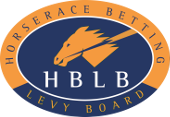Tuesday 21st December 2021
Horserace Betting Levy Board Publishes International Codes of Practice for 2022
The Horserace Betting Levy Board (HBLB) has published the 44th edition of the Codes of Practice on equine disease, in preparation for the 2022 equine breeding season. These are available online only at codes.hblb.org.uk.
The online version may be accessed as a full document or as separate sections. It may be downloaded in pdf format for printing or viewing offline.
The updated free app, EquiBioSafe, which covers both breeding and horses in training will be released on iOS and Android in the New Year.
Applying to all breeds of horse and pony, and to both natural mating and AI, the Codes are an essential guide for the prevention and control of equine diseases which represent a potential major threat to equine breeding:
|
|
For each disease there are sections which describe transmission and clinical signs, as well as advice on prevention, diagnosis and control of infection. The Codes explain the notification requirements that apply for the four diseases that are notifiable by law: CEM, EVA, EIA and dourine.
The Codes of Practice are reviewed annually by an expert Sub Committee of HBLB’s Veterinary Advisory Committee. The Sub Committee includes representatives of:
- Thoroughbred breeders in Britain, Ireland, France, Germany and Italy
- The non-thoroughbred sector
- Defra
- Equine veterinary practitioners
- Scientists expert in infectious disease.
Rob van Pelt, Chairman of the Codes of Practice Sub Committee, said:
“The 2022 version includes a new section giving guidelines on how to recognise, diagnose and manage piroplasmosis. This disease has been identified in the UK from time to time and may well be seen more widely in the years to come.
“The revisions for this year also include clarifications in a number of areas: the control of CEM, the diagnosis of WNF and in the guidelines on strangles. There is also updated information on vaccination requirement and supply.”
For further information please contact Annie Dodd, HBLB Grants Manager by email at annie.dodd@hblb.org.uk.
